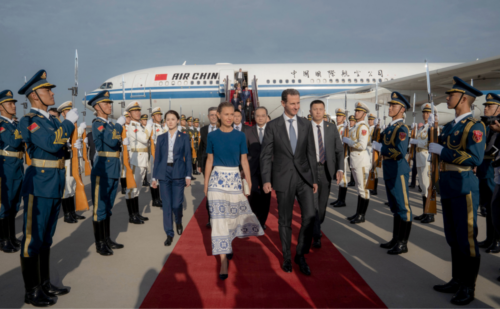China opposes U.S. sanctions on Ethiopia and Afghanistan as humanitarian crises worsen
Since mid-August, flows of foreign aid have been interrupted to Ethiopia’s war-torn Tigray region and to Taliban-controlled Afghanistan. The U.S. has threatened sanctions to try to pressure a resolution to the Ethiopia conflict, and is reluctant to lift restrictions on the Taliban. China has objected to all foreign sanctions, calling them unilateral interference.

In recent days, China has stepped up its opposition to foreign financial pressure, primarily in the form of economic sanctions and other threatened measures from the United States, on two countries: Ethiopia and Afghanistan.
Both countries are mired in humanitarian crises right now, for different reasons.
Ethiopia’s emergency in Tigray
Ethiopia’s government has been taking military action against the Tigray People’s Liberation Front (TPLF), which controls the country’s northern Tigray region, for over 10 months.
- The situation has worsened in recent weeks, with Tigray under an effective aid blockade since August 16, leading to alarm over cases of starvation.
- U.S. President Biden announced on September 17 that he was prepared to sanction multiple parties in the conflict, in an attempt to apply pressure toward a “negotiated ceasefire and political resolution of this crisis.”
- Ethiopian Prime Minister Abiy Ahmed has resisted outside pressure or calls for mediation, and called TPLF a “terrorist group” in response to Biden’s announcement.
“China opposes the new U.S. sanctions regime on Ethiopia,” Foreign Ministry spokesperson Zhào Lìjiān 赵立坚 said yesterday (in English, Chinese). Zhao added that the “wanton exertion of pressure through sanctions or the threat of imposing sanctions” amounts to interference “in other countries’ internal affairs,” and concluded that the resolution of the conflict should be left to “parties concerned in Ethiopia.”
China news, weekly.
Sign up for The China Project’s weekly newsletter, our free roundup of the most important China stories.
Afghanistan’s foreign reserves frozen since Taliban takeover
Since the Taliban retook the Afghan capital, Kabul, in mid-August, no international government has officially recognized the group as the country’s legitimate government. Beijing has gone further than most to curry favor with the Taliban, as it seeks security assurances, including for its substantial investments in neighboring Pakistan.
- Over $4 billion of annual development aid that had flowed into Afghanistan in recent years has evaporated since the Taliban takeover, the Financial Times reports, and the United Nations has warned that “one in three Afghans do not know where they will get their next meal.”
- Three months of emergency aid, totaling $1 billion, have recently been pledged by foreign governments, but “Afghanistan has nearly $9 billion in foreign currency reserves that could be used for emergency spending, most of which is held in international accounts” and frozen by the United States, the FT says.
Today, China urged, “economic sanctions must be stopped.” At a G20 Foreign Ministers meeting, Foreign Minister Wáng Yì 王毅 said (in English, Chinese), “All kinds of unilateral sanctions or restrictions on Afghanistan should be lifted…Afghanistan’s foreign exchange reserves are its national assets, and should be owned by and used for the people, rather than being used as a bargaining chip to exert political pressure on Afghanistan.”
“Two key principles” behind China’s response
At the China Africa Project, Eric Olander writes that there are two principles underlying China’s approach to the Ethiopia crisis — but these two points could equally apply to Afghanistan. They are:
INTERFERENCE: China fumes every time [foreign countries] seek to intervene in other states — even in response to extreme humanitarian crises as was recently the case in Myanmar. China is guided by its longstanding non-interference doctrine but, more importantly, it wants to eliminate any precedent that could justify that kind of intervention against China itself.
UNILATERALISM: China has long resented unilateral U.S. action whether in Iraq, Afghanistan or via the various economic sanctions introduced by former President Donald Trump. Instead, Beijing prefers that disputes be taken to multilateral forums like the United Nations and African Union where it can exert more influence and outcomes are often less decisive.
See also:
- Ethiopia: U.S. sanctions threat attempts to change the equation / Council on Foreign Relations
“The impact of the Biden administration’s threat to impose sanctions on certain individuals involved in the Tigray conflict in Ethiopia is likely to be limited.” - Ethiopia: African intellectuals’ letter calls on AU to make effort in ending Tigray conflict / All Africa
- U.S. wrestles with Taliban sanctions as Afghan crisis looms / NYT (paywall)






